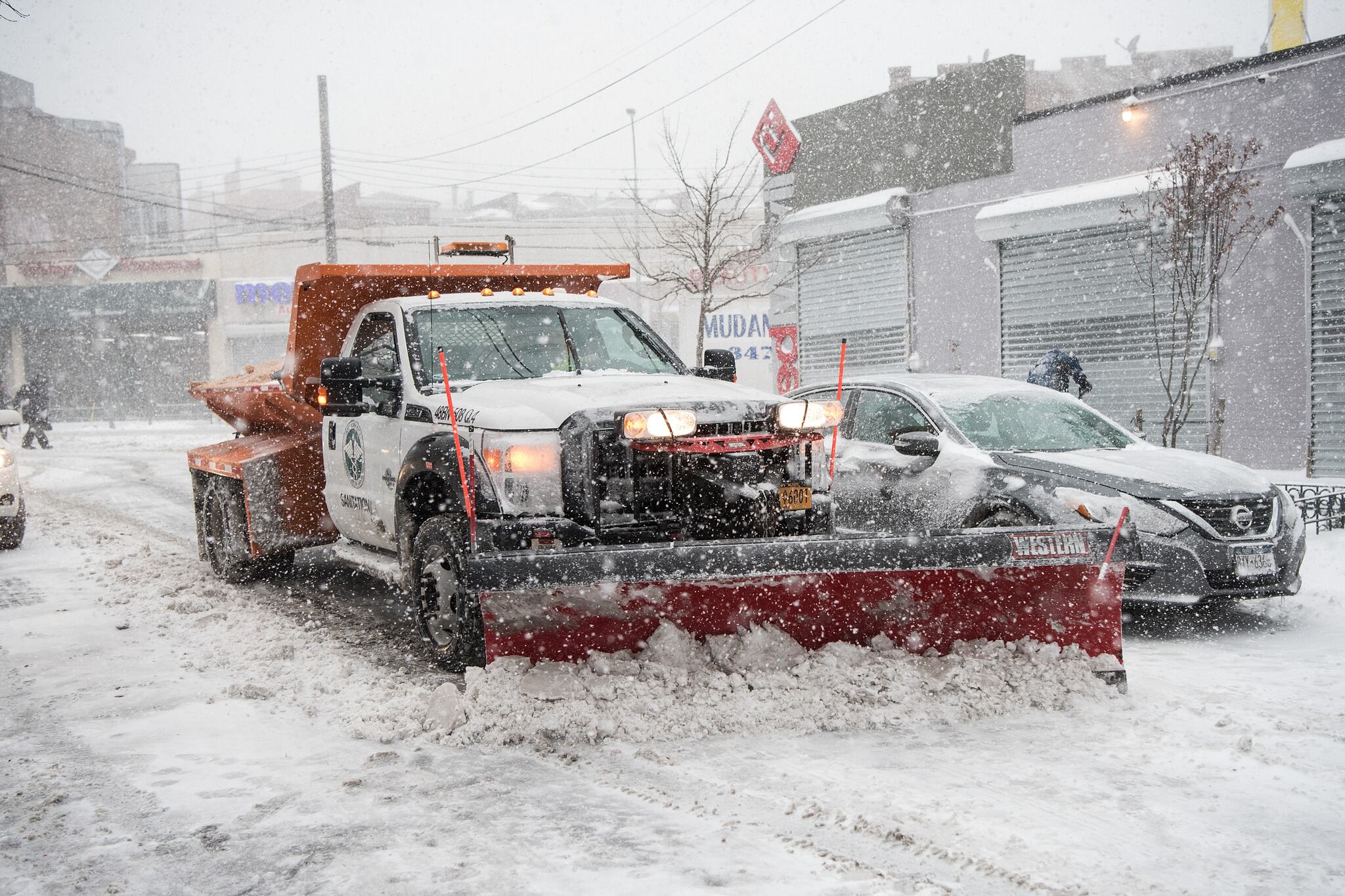Sign up for Chalkbeat New York’s free daily newsletter to keep up with NYC’s public schools.
New York City public schools will conduct classes remotely on Tuesday as a winter storm threatens to dump up to eight inches of snow on the five boroughs, Mayor Eric Adams said Monday morning.
Adult education and Young Adult Borough Centers will not operate on Tuesday. Many after-school programs operated by the Department of Youth and Community Development will run remotely, though an Education Department spokesperson said parents should reach out to their schools for more information.
In the wake of the pandemic, the city’s public schools announced that it will not typically cancel classes in the event of inclement weather and instead pivot to remote instruction. As officials added additional holidays to the school calendar, the Education Department has vowed to offer remote instruction during snow storms in part to meet a state requirement to provide 180 days of school each year.
“Long gone are the days of just a snow day and everybody just has off,” said schools Chancellor David Banks at a snow-related media briefing. “We’re going to have a big snow storm most likely, but our students — we expect for them to be fully engaged.”
Parents, students and teachers: How are you preparing for remote school on Tuesday? Let us know by dropping an email to ny.tips@chalkbeat.org.
Tuesday will be the first major test of the city’s plan to quickly pivot to remote learning due to bad weather, as the city has not experienced a major snowfall over the past two winters. When wildfire smoke engulfed the city last summer, the Education Department shifted to remote instruction for a day, but the vast majority of students already had a scheduled day off.
The decision to pivot to remote instruction comes with tradeoffs, as families may struggle to line up childcare and many students rely on school meals. But keeping school buildings open comes with challenges, too, and Banks said he did not want to risk students getting stuck on yellow buses or strand staff at schools if weather conditions worsened throughout Tuesday morning.
The amount of snowfall is still relatively uncertain. Officials said they wanted to make the decision about whether to hold classes virtually before the storm approached to give schools — and families — more time to plan for remote instruction.
Parents should expect teachers to provide “synchronous” instruction, delivering lessons in real time and mimicking the traditional school day, Banks said. Although he acknowledged there will likely be some technical glitches, Banks noted that schools had previously asked families to practice logging in for remote learning to prepare for possible snowstorms. Additionally, the Education Department has “help centers” for families who need assistance.
Students who want to go outside and play in the snow could do so after class, Banks said.
https://t.co/BcVJPTHEkf pic.twitter.com/SQVseyhSj9
— Chi Ossé (@OsseChi) February 12, 2024
Adams bristled at the notion that switching to remote instruction could present tech roadblocks to families, or that children may simply skip remote classes to have fun in the snow.
He claimed his own mother helped him get to school in poor weather, holding it up as an example for others to overcome their own obstacles. ”You can’t tell me that mommy took me to school with her arthritic knees in a snow day, and you are frustrated by logging on to a computer — that’s not acceptable to me,” he said. “Our children must learn. They fell behind. We need to catch up.”
Still, some schools said it could be a challenge to get students logged in for remote learning. Anna Nelson, an assistant principal at the Bronx Latin, estimated that about a quarter of her school’s students don’t have reliable internet access at home.
“At our school, everyone will have a device,” she said. “It’s whether they will be able to use a device.”
Some observers said the announcement felt premature, coming well before a single flake of snow hit the ground, and reports indicate a more modest accumulation of just a couple inches is still possible.
News of the decision to hold classes virtually trickled out on X, previously known as Twitter, before the mayor’s official announcement. Banks told a gathering of union chapter leaders of the decision in advance of a professional development session related to the city’s sweeping new literacy curriculum mandate, according to a union spokesperson.
The mayor tweeted the news just after 10 a.m. — though schools had yet to receive an official communication, frustrating some administrators who learned of the news from their teachers or on social media. An email to school administrators went out shortly after 11 a.m.
“It shouldn’t be principals hearing from their teachers and Twitter,” Nelson said. “I don’t have a Twitter account.”
Correction: Based on incorrect information in an Education Department press release, a previous version of this story said all after-school programs are canceled. In fact, many will be open remotely.
Alex Zimmerman is a reporter for Chalkbeat New York, covering NYC public schools. Contact Alex at azimmerman@chalkbeat.org.






